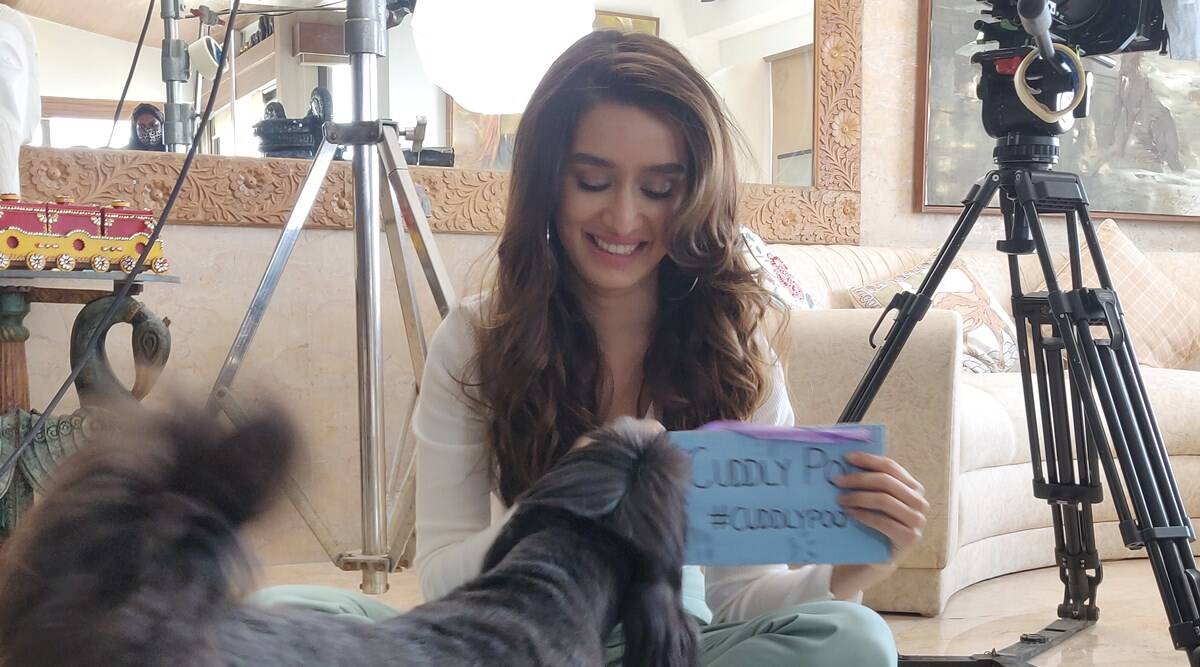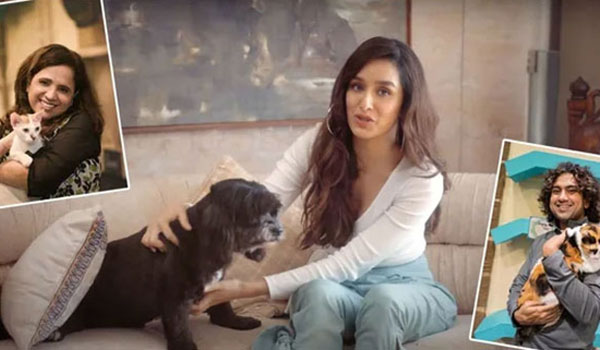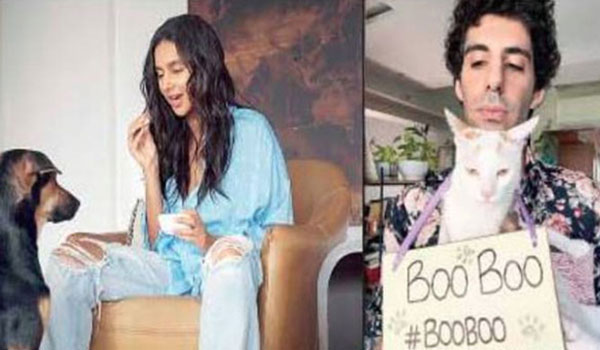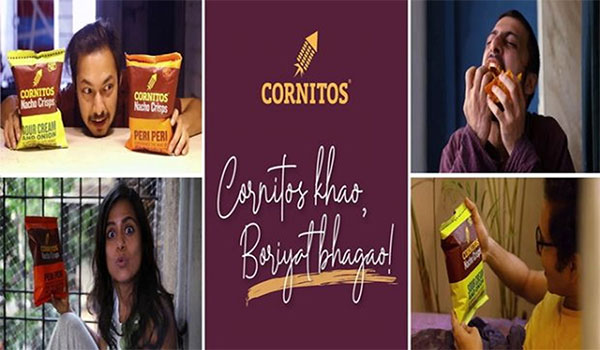‘Adopt, not shop’: The Tails of Boo-Boo & Cuddly Poo reveals plight of stray animals

Shot entirely during the lockdown, the documentary features several celebrities including Shraddha Kapoor, Jim Sarbh, Maria Goretti, Amrita Puri, Anushka Manchanda, Shibani Dandekar and others
Animals are an indispensable part of our lives and are, undoubtedly, the most loving creatures on this planet. Animal lovers form an unbreakable connection with their pets and go to lengths to ensure their well-being. Unfortunately, the same can’t be said about stray animals who undergo immense plight on a daily basis.
To shed light on this issue and turn people’s attention towards their plight — with a focus on cruelty, abandonment and rescue — filmmaker Salil Jason Fernandez and Vandana Sethhi, founder of Water Communications and Earth Films, have joined hands to create a documentary titled ‘The Tails of Boo-Boo & Cuddly Poo’. Emphasising “adopt, not shop”, the documentary takes viewers on a quirky ride with four-legged angels.
“The universal message of the documentary is about embracing stray dogs and cats, and the trailer encompasses the message of the documentary. If we are able to educate and inspire the audience in this regard, then we have struck gold,” Fernandez said.
Setthi added, “It is truly a passion-driven film and a labour of love for the voiceless. Salil has created a benchmark for all future documentaries.”
Shot entirely during the lockdown, the documentary features several celebrities including Shraddha Kapoor, Jim Sarbh, Maria Goretti, Amrita Puri, Anushka Manchanda, Shibani Dandekar and others, who share their personal experiences with their pets and drive the message of animal welfare further. A two-minute trailer of the documentary was released recently.
“We have featured people who are not just animal-lovers but have also adopted stray dogs, to inspire others and make them more aware,” Fernandez explained.
In a conversation with indianexpress.com, the filmmakers shared their experience of making the documentary, the idea behind it and what they wish to achieve through this film.
Excerpts:
What led to the conceptualisation of The Tails of Boo-Boo & Cuddy Poo?
Salil: I have always been extremely empathetic towards animals. I have been working for animal welfare at a grassroots level. Gradually, I went deeper into it and understood their plights. During the lockdown, their difficulties aggravated and I realised there was no platform to spread information about the plight of stray animals. So, we wanted to use our skill-set to create awareness about this issue. I felt compelled to tell this to the world and that was my driving force.
You say that the condition of stray animals worsened during the lockdown. Can you tell us more?
Salil: The lockdown surely aggravated the situation. With the restaurants shut and limited groceries with people who regularly fed earlier, stray animals were left starving. People were abandoning pets and some were having lack of resources. That’s when I realised that the animal welfare system in the country is not organised and there is a lack of a proper association. I read news of animal cruelty on a regular basis. All of this, put together, compelled me to put together a tool to disseminate information in the hope to educate and inspire the audience.
The documentary, however, treats this serious issue in a quirky manner. What made you narrate the story in such a way?
Salil: Comedy is a great device to disseminate information. We have taken a very serious subject and consciously made an effort to enable the audience to take the information with an entertainment quotient. I brought my 10 years of experience as an ad filmmaker in the documentary. I have made it extremely stylised and easy on the eyes. It is a combination of the quintessential non-fiction talking heads along with fiction elements like 2D animation, standup comedy, roundtable discussion, talk shows, game shows and infomercials.
Vandana: We are talking to millennials. They see things differently than the older generations. They are habituated to looking at good things. We can’t change the older generations but we can change the future. It’s important for us to look at the sensibilities of the millennials and work accordingly as they are more interested in these subjects.
Since the entire film was shot during the lockdown, what were the challenges you faced?
Salil: It has been a long journey of 13 months. However, it was also overwhelming to receive the support of people. A number of people collaborated on this project and worked on it pro bono. Around 35 celebrities, 100 animal welfare workers, 10 veterinarians and others came together for this documentary. 30 animal welfare organisations including Welfare of Stray Dogs (WSD), In Defense of Animals (IDA), World For All (WFA) etc are a part of this documentary, which is a milestone because they came together for the first time to show solidarity towards this cause. While there was a constant fear of the deadly virus, the support of people was reassuring in the challenging times.
What do you wish to achieve through this documentary?
Vandana: We want the subject of the plight of animals to be taken seriously. Primarily, we want to educate the masses at large through this that even stray animals need food, shelter and other things on a regular basis. They need to be vaccinated and sterilised timely. We wish to inspire our millennials to adopt, not shop. We also aim to encourage community adoption. Also, we want to spread the message that this is equal earth and belongs equally to animals. Finally, we demand the amendment to The Prevention of Cruelty of Animals Act, 1960. We intend to become the voice of the voiceless and demand their rights from the government.
What are your future plans with respect to this documentary?
Vandana: Currently, we are entering all possible international film festivals and awaiting their results. We genuinely hope to raise some alarms about the issue.






